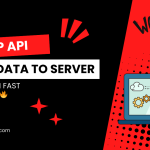The Best Fluffy Pancakes recipe you will fall in love with. Full of tips and tricks to help you make the best pancakes.
The Rise of Edge Computing in IoT
IoT devices generate massive amounts of data every second, and traditional cloud computing architectures often struggle to handle the sheer volume of information in real-time. This is where edge computing comes into play, offering a distributed computing paradigm that brings data processing closer to the source – the edge.
Real-Time Data Processing
By processing data at the edge of the network, IoT devices can make split-second decisions without relying on a distant cloud server. This not only reduces latency but also minimizes bandwidth usage and ensures that critical insights are generated instantaneously.
Improving Performance and Efficiency
Edge computing enables IoT systems to operate with greater efficiency and performance. By offloading processing tasks to edge devices, overall system performance is enhanced, leading to quicker response times and more reliable operations.
Enhanced Data Security
Another significant benefit of edge computing in IoT is enhanced data security. By processing sensitive information locally, data is less exposed during transit to a central server, reducing the risk of potential breaches.
Challenges and Considerations
While edge computing offers numerous advantages for real-time IoT data processing, there are challenges to overcome. These include managing edge devices at scale, ensuring interoperability, and optimizing resource utilization across the edge network.
Conclusion
Edge computing is revolutionizing the way IoT data is processed in real-time, paving the way for enhanced performance, efficiency, and data security. By harnessing the power of edge computing, organizations can unlock the full potential of their IoT systems and drive innovation in the ever-evolving world of connected devices.




